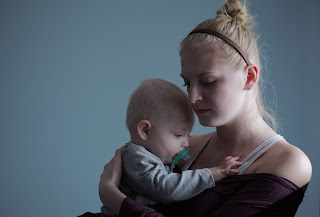How to get Florida Housing Assistance for Single Mothers
Raising a child on your own is hard enough, let alone trying to support a family on a single income. That is the challenge single mothers face each day.
Through the nation's initiatives and programs, Florida actively reaches out to these families -- supplying the much-needed financial safety net.
These include, amongst others, cash and food assistance, reemployment assistance, child care subsidy, and Medicaid.
If you're a single mother from the"Land of Sunshine", given below are some of the Florida housing assistance for single mothers that you might be qualified for.
Programs That Help Single Moms
- FLORIDA TEMPORARY CASH ASSISTANCE (TCA)
The objective of the TCA program is to provide temporary financial assistance to qualified families with children under age 18 whose income is not more than 185 percent of the poverty level.
Eligibility is determined through ACCESS Florida which has automated eligibility processes such as Temporary Cash Assistance, Food Assistance, and Medicaid or Florida housing assistance for single mothers.
If you're qualified for TCA, you may receive annual benefits -- up to $303 per month but restricted to a total of 48 months. You also need to participate in work-related activities for a specified number of hours each week.
- FLORIDA FOOD ASSISTANCE PROGRAM
The Food Assistance Program help for single moms and improve the diets of low-income Floridians, regardless of age, by providing them with emergency food and nutrition assistance at no cost.
SNAP gains are modest. The amount of benefits received is based on household income, other financial assets, and household size. For example, a single mum of 2 who works full-time may just receive $347 in benefits per month.
Unless otherwise exempt, all work-eligible participants will be required to take part in the SNAP Employment and Training program, operated by Local Workforce Development Areas throughout the state of Florida.
- FLORIDA MEDICAID
Florida Medicaid provides medical coverage for Florida residents that meet the program's eligibility requirements. This mostly includes kids from low-income families as well as pregnant women.
In Florida, Medicaid covers children under age 19 with family income under 133 percent of the federal poverty level; and pregnant women up to 191 percent of the poverty level.
Since Florida is not expanding Medicaid policy, most low-income adults without children and some parents might not be qualified. But, you may still have the ability to get financial assistance to pay for coverage in the marketplace or Florida housing assistance for single mothers.
How do I use for Florida Medicaid?
Applications for Medicaid are made through ACCESS Florida or the Department of Children and Families (DCF). Families who just wish to apply for Medicaid for their kids may submit a Florida KidCare program.
- FLORIDA KIDCARE (SCHIP)
Florida KidCare offers affordable, low-cost medical insurance to the uninsured children of Florida. Currently, more than 2.4 million Florida kids are registered in Florida KidCare.
Florida KidCare covers Florida children from birth through the end of age 18 through four government-sponsored Medical Insurance plans
Medicaid -- Birth through 18 years
MediKids -- Ages 1 year to 4 years
Florida Healthy Children -- Ages 5 years to 18 years
Children's Medical Services Managed Care Plan -- Birth through 18 years with particular needs
Children with family incomes up to 210 percent of poverty are eligible for SCHIP. No interview is required, simply fill out and email the simple, one-page program. Many families pay $15 or $20 a month, but many households pay nothing in any way.
- FLORIDA SCHOOL READINESS PROGRAM
Families in Florida who are trying to work or get training to work may be eligible for financial assistance through the School Readiness Program or daycare assistance Florida single mothers. These solutions vary from extended day to extended calendar year, and school-age care for kids.
Based on the household income, you will pay a fee for each child for whom you receive financial aid. The co-payment is based on household income and family size and is paid directly to the child care provider.
- FLORIDA HEAD START
Head Start is a national school readiness program that provides comprehensive education, health, nutrition, and parent involvement services for low-income faculty kids ages 3 to 5.
Early Head Start is open to kids under 3 years old in low-income families, while kids 3 to 5 years old participate in Head Start. Pregnant women may also qualify for Early Head Start.
For detailed information regarding registration, eligibility, and accessible services, please locate a Head Start program in your county.
- FLORIDA SCHOOL BREAKFAST AND LUNCH PROGRAM
The National School Lunch Program (NSLP) and School Breakfast Program (SBP) are federally funded programs that help for single moms or schools and other agencies in providing nutritious meals at affordable prices to children whose families meet income needs.
You may submit an application for school meals at any time during college by submitting a household application directly to your school. If you are a SNAP recipient, your child automatically qualifies for free school meals.
- FLORIDA LOW-INCOME HOME ENERGY ASSISTANCE PROGRAM (LIHEAP)
Florida's LIHEAP help eligible low-income Florida households in meeting the costs of home heating and cooling system. Qualification is determined by the local service providing LIHEAP services in the county where you reside.
In Florida, LIHEAP assistance isn't a monthly gain. Depending on the availability of finance in your county, you may get help for single moms around three times a year -- although not every month.
You must contact your regional LIHEAP supplier to find out if cash is available, how to apply, and how to get an application. No web-based application is available at this moment.
Families with income up to 200% of the poverty level may also be eligible for the Weatherization Assistance Program (WAP). Preference is given to older or disabled residents and households with kids.
- FLORIDA REEMPLOYMENT ASSISTANCE PROGRAM
Reemployment Assistance Program provides temporary wage replacement benefits to qualified people who are out of work through no fault of their own that meet Florida's eligibility conditions.
Florida provides up to 12 weeks of UI for new claimants in 2019 -- adjusted every year according to fluctuations in the state's latest unemployment rate. The maximum weekly benefit amount remains at $275.
All claimants filing a new claim are required by law to register for work via Employ Florida Marketplace before claiming benefits. Unless otherwise exempt, all reemployment assistance claims have to be registered online.
- FLORIDA STUDENT ASSISTANCE GRANT (FSAG)
FSAG, Florida's biggest need-based grant application, provides help for single moms to degree-seeking, resident, and undergraduate students who demonstrate"exceptional" financial need and meet other eligibility criteria.
The annual award amount may change each year. The minimum yearly award amount is $200 and up to a max of $2,610 for people with the lowest EPC.
Submit the Free Application for Federal Student Aid (FAFSA) as soon as possible after October 1st annually. Funds are limited and awards are made based on the priority consideration.
- FLORIDA RESIDENT ACCESS GRANT (FRAG)
It is recommended that the application be completed before May 15th, since these funds are restricted and will be given on a first-come, first-serve foundation.



